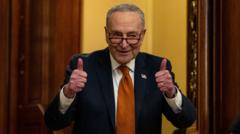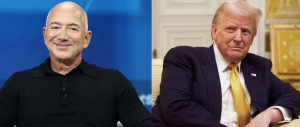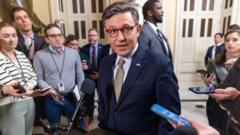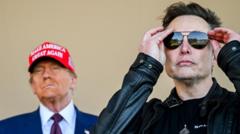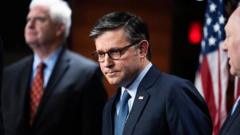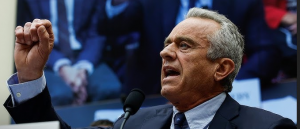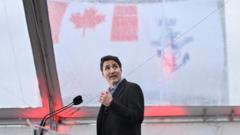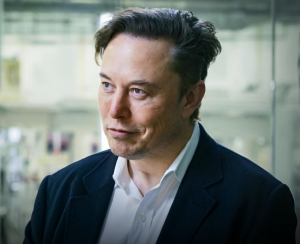The appointment sparks debate over Musk's influence in policy-making and the implications for his business ventures.
**Elon Musk Appointed to Lead Trump's New Department of Government Efficiency**
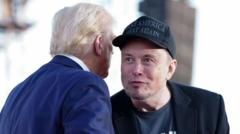
**Elon Musk Appointed to Lead Trump's New Department of Government Efficiency**
The tech billionaire teams up with Donald Trump to overhaul bureaucracy and reduce government waste.
Billionaire entrepreneur Elon Musk will spearhead President Donald Trump's newly created Department of Government Efficiency, referred to as "Doge." This role, announced by Trump on social media, involves dismantling bureaucratic structures, slashing unnecessary regulations, eliminating wasteful spending, and restructuring federal agencies. Alongside Musk, former Republican presidential candidate Vivek Ramaswamy will assist in this audacious mission.
Musk, who has publicly expressed his intent to cut the government's budget by "at least" $2 trillion from its $6.5 trillion standing, may find his business leadership experience beneficial. His previous success in managing companies has raised questions about how his strategies will translate into government efficiency. Critics, however, voice concerns regarding the potential for conflicts of interest, especially as Musk's companies routinely navigate federal regulations.
The influence of Musk’s leadership style is evident from his tumultuous stewardship of Twitter, now branded as X, which he acquired for $44 billion. His aggressive restructuring of the platform led to a workforce reduction from approximately 8,000 employees to around 1,500, while he monetized various features to sustain revenue streams amid advertiser backlash. Critics of Musk’s methods fear that a similar approach could exacerbate issues like misinformation and hate speech in a governmental context.
Thomas Gift, a University College London professor focused on U.S. politics, notes that while Musk may aim to cut through bureaucratic inefficiencies, his newly appointed role carries potential sway within Trump's administration. The appointment may enable Musk to leverage his beliefs in deregulation, shaped by challenges faced in his ventures, particularly Tesla and SpaceX.
Musk's previous criticisms of government agencies highlight his vested interests, which include influence over regulations affecting his tech enterprises. He recently threatened legal action against the Federal Aviation Administration due to fines levied on SpaceX, emphasizing what he sees as governmental overreach. Musk’s comments on bureaucracy potentially stifling innovation lean into his aspirations for Mars colonization.
Moreover, Musk's substantial financial backing of Trump’s campaign, reportedly totaling $200 million, demonstrates a commitment that may have garnered him a unique position within the administration. This loyalty positions Musk as a key adviser on diverse topics, including technology policy and international affairs, underlining the intertwining of personal ideology and financial interests in his support for the former president.

